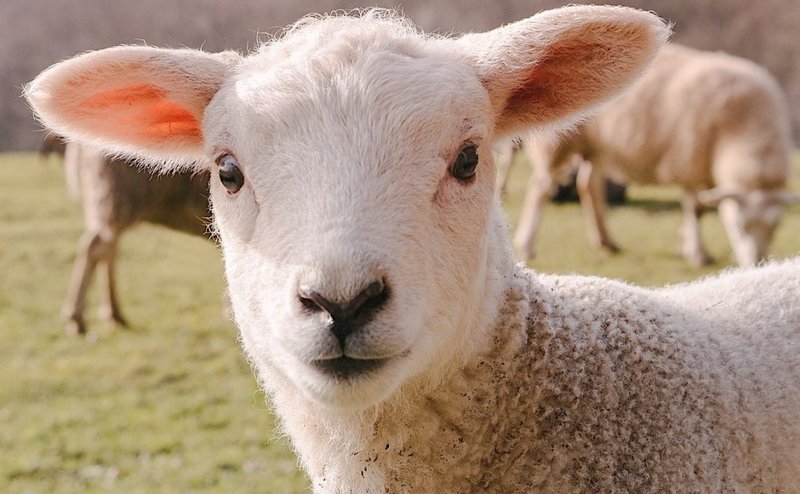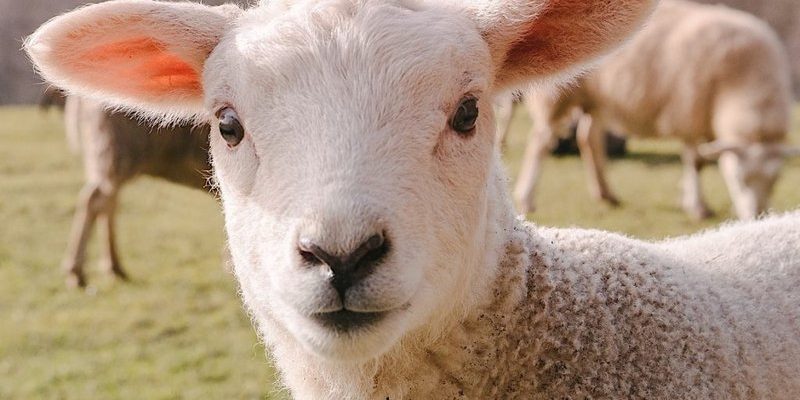
Honestly, sheep have brains that are packed with some impressive features. They can remember faces, navigate complex environments, and even form social bonds. If you’ve ever watched a flock of sheep move together, you might’ve noticed their coordination and social dynamics. So, grab a cup of coffee, and let’s dive deeper into what makes sheep tick!
The Basics of Sheep Intelligence
To understand how smart sheep are, we need to first look at their brains. Sheep have a brain structure similar to many mammals, which means they possess cognitive abilities that are quite advanced for their size. In various studies, sheep have demonstrated the ability to recognize faces, not just from their own species but even human faces! This ability to remember is crucial for their survival, as it helps them identify friends from foes.
You might be wondering how this recognition works. Sheep have excellent spatial memory, meaning they can remember the locations of food and water sources. This skill is vital for their foraging habits, especially in sprawling pastures where resources aren’t always easy to find. Their ability to navigate complex environments showcases how they utilize their intelligence to adapt to changing conditions.
Additionally, researchers have found that sheep can learn specific tasks and even solve simple problems. They can remember these tasks over long periods, which also demonstrates a level of intelligence not commonly associated with them. It’s pretty fascinating to think about how these animals use their minds to thrive!
The Social Lives of Sheep
Sheep are incredibly social animals, often living in flocks that can range from a handful to several hundred individuals. This social structure is a big part of their intelligence. In a flock, sheep communicate through various vocalizations, body language, and even through scent. They form strong social bonds, which helps them identify and interact with each other.
When you see a group of sheep clustered together, they’re not just hanging out. They’re engaged in a complex social dance! They often engage in grooming behaviors, which strengthens bonds and reduces stress. You might find it charming, but this social behavior is rooted in their need for safety and companionship. In the wild, a lone sheep stands out as a target for predators, so sticking together is their best strategy.
Interestingly, sheep can also recognize their companions and remember them for years. Studies have shown that sheep can even remember over 50 different flock members, much like how humans recognize their friends. This ability to form relationships and maintain social structures speaks volumes about their cognitive abilities.
Sheep are not just passive grazers. They engage with their environment in meaningful ways. One fascinating aspect of their intelligence is their ability to learn from experiences. For example, if a sheep encounters a new obstacle, it will observe and figure out how to navigate it. This ability to problem-solve is a key indicator of intelligence.
Let me explain how this works in a real-world context. When sheep are trained using positive reinforcement, they can learn tasks such as walking through mazes or responding to specific commands. They’re quite good at picking up on cues from their shepherds or handlers, which shows their capacity for learning.
Moreover, their memory is tested in various experiments, where they can remember specific tasks or routes for extended periods. This long-term memory is vital for their survival, helping them find food or avoid dangers in their environment. Imagine having a brain that could remember not just where food is but also the experiences that come with it!
Emotional Intelligence in Sheep
You might not think of sheep as emotional creatures, but they have a rich emotional landscape. Research shows that sheep experience a range of emotions, from joy to fear, and they respond to the emotions of other sheep. When one sheep is anxious, others in the flock can pick up on that and mirror those feelings. This is a vital trait for maintaining harmony and safety within the group.
This emotional intelligence also plays a role in their relationships. Sheep can develop attachments to specific individuals, whether human or fellow sheep. You might find it heartwarming that when a friend is in distress, they can support each other emotionally. This support system is crucial for their well-being, and it’s a beautiful example of their social intelligence.
In times of stress, such as during shearing or transportation, sheep can become agitated. Understanding their emotional responses allows farmers and handlers to handle them more compassionately, ensuring their welfare. Knowing they have emotions and social needs helps create better environments for them.
Comparing Sheep Intelligence to Other Animals
If you’re curious about how sheep stack up against other animals, it’s pretty interesting. While they may not have the same problem-solving skills as dogs or the same level of social complexity as elephants, sheep do hold their own in the intelligence department. They show a unique blend of social awareness, emotional intelligence, and cognitive skills.
For example, dogs are often touted as the champions of animal intelligence, able to learn commands and perform tricks impressively. However, sheep are skilled at navigating their social worlds, and their ability to recognize faces and remember long-term relationships is impressive in its own right.
Cats, on the other hand, often exhibit more independence but lack the same level of social cohesion that sheep display. Sheep thrive in groups, relying on their social networks for safety and support. In this way, you could say they possess a different type of intelligence—one that is deeply connected to their social living.
So, how smart is a sheep? The answer is more nuanced than you might think. Sheep demonstrate remarkable cognitive abilities, social awareness, and emotional intelligence. These traits enable them to navigate their environments, forge strong relationships, and adapt to challenges.
Understanding that sheep are more than just passive grazers reminds us of the intricate lives these animals lead. They not only survive but thrive through their intelligence and social structures. The next time you see sheep grazing, remember—there’s a lot more happening behind those fluffy faces than meets the eye!

